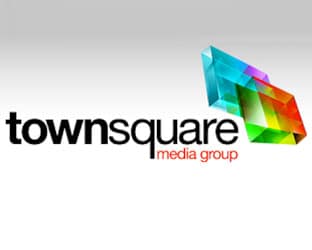 It’s an issue that will light up message boards but in official quarters will still be handled with kid gloves. Does NPR and public radio in general sound “too white”?
It’s an issue that will light up message boards but in official quarters will still be handled with kid gloves. Does NPR and public radio in general sound “too white”?
NPR itself suggested recently that the answer might be yes in an unusual bit of public self-examination. In a commentary aired on “All Things Considered,” its signature newscast, and in a subsequent Twitter chat that quickly trended nationally, the public radio network lit the fuse on an explosive discussion about how a broadcast should sound.
The commentary came from Chenjerai Kumanyika, an African-American who is an assistant professor of communication studies at Clemson University and a radio producer. Kumanyika’s “All Things Considered” piece left no doubt about his point of view: It was titled “Challenging the Whiteness of Public Radio.”
While editing a script aloud for another public radio program last June, Kumanyika said in his commentary, he realized he was “imagining another voice, one that sounded more white.”
As a result, he concluded: “Without being directly told, people like me learn that our way of speaking isn’t professional. And you start to imitate the standard or even hide the distinctive features of your own voice. This is one of the reasons that some of my black and brown friends refuse to listen to some of my favorite radio shows despite my most passionate efforts.”
Kumanyika was referring to the subtle matter of code-switching, or speaking one way to one’s immediate peers and another way — call it more “white” — to a larger group. No matter the racial or ethnic identity of the speaker, people on public radio sound white, he suggested.
“I was hoping to expand the conversation,” Kumanyika said in an interview. “This is not only about race but about class and ethnicity, too. I was hoping that audiences and listeners can begin to rethink what their expectations are and what we’re missing if we don’t challenge our comfort zones.”
The topic immediately blew up on Twitter, drawing thousands of comments in a long-running “tweetup” (at #PubRadioVoice) hosted by several of NPR’s African-American and Latino journalists, including Audie Cornish, a host of “All Things Considered.”
Lizzie O’Leary, who hosts public radio’s “Marketplace Weekend,” tweeted that women can also face an issue on the air: “I was excited about something and a listener complained I sounded ‘like a sorority girl.’”
Like many news organizations, Washington-based NPR has long struggled with diversity, on and off the air. Most infamously, it drew an avalanche of criticism in 2010 when it dismissed news analyst Juan Williams – its only African-American commentator – after he made some intemperate remarks on a Fox News program. It also drew grief last year when it dropped “Tell Me More,” a daily news-discussion program designed to increase NPR’s minority audience.
Amid those episodes, NPR started Code Switch, with a team of journalists covering race and culture, both online and on the air. The unit organized the Twitter discussion about public radio voices.
The Twitter response is “an indicator of how much people wanted to have this conversation,” said Lynette Clemetson, who heads the 11-member Identity and Culture reporting unit at NPR that includes Code Switch.
The generally middle-American – i.e., “white” – sound of NPR is perhaps most evident, even startling, when reporters of Latino heritage “sign” their reports by saying their names with a strongly Spanish pronunciation. Sylvia Poggioli, NPR’s longtime correspondent in Rome, is perhaps as famous for her reporting as for the distinctive way she pronounces her name with an Italian inflection.
At its most hilarious, the NPR “sound” was captured by “Saturday Night Live” several years ago in a serial skit about a fictitious public radio cooking show, “Delicious Dish.” Cast members Ana Gasteyer and Molly Shannon as the hosts, and Alec Baldwin as a frequent guest..





Here we go!!!!!!!!! Everything HAS to be POLITICALLY CORRECT!!!!!!
For a broadcaster to be a broadcaster they must sound “white”. Narrowcasters can sound however they wish. Should NPR speak “Jive”? If NPR did speak “Jive” they would lose most of their audience. Dat brillo… but it is true.
Amazing. I have found the NPR people to be the most articulate, educated people in the industry. I didn’t realize it was a race issue. Does this mean that the minority stations will be trying to become more white?
Comments are closed.